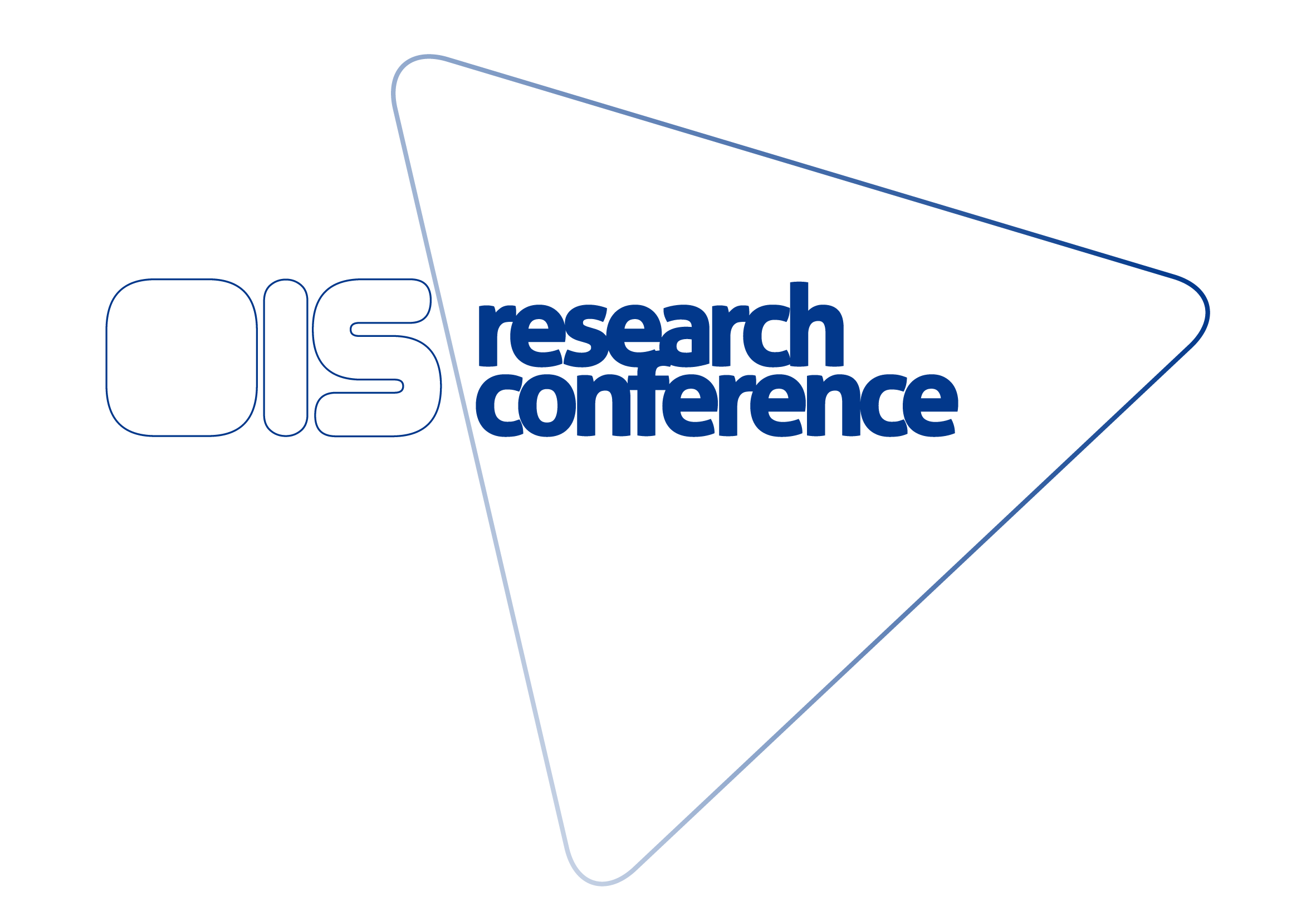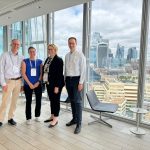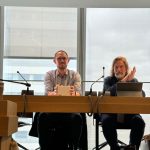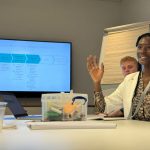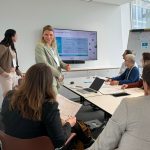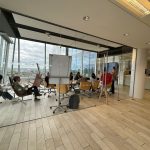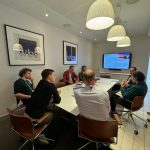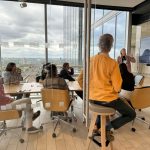Making the Case
Learning from the Community
by Susanne Beck and Thomas Palfinger, 23/05/2024
All good things come to an end, and our OIS Research Conference is no exception. But we would never send anyone home without the certainty that there will be a next time! We will be back in Vienna from May 14-16, 2025, where we will pick up the threads again and weave new ones together.
Before everyone went home to start processing their impressions and developing new project ideas, there were still some important points on the agenda. The OIS research community is not only about exchanging ideas but also about supporting each other to improve our work. We gathered our collective intelligence around five cases during the OIS Case Session to learn from each other and provide actionable feedback and guidance to those projects.
In the first case, we learned from Isaak Vandermaesen the Flemish word for „wow“: „Amai!“ This project engages citizens in the development of Artificial Intelligence (AI) applications with the potential for positive societal impact. Citizens are informed about AI development and invited to suggest possible fields of application. Through a multi-step process, some of these suggestions receive funding. The key questions for the OIS research community were whether there are possibilities to make the process more open and participatory while simultaneously improving scientific rigor.
The second case, the „KTT Impact Canvas“ project presented by Iliyana Madina, tackled the challenge of assessing the impact of open innovation activities, particularly through crowdsourcing. A small interaction with the audience revealed a high interest in measuring research impact but significantly less experience in doing so. This project seeks to share insights on evaluating crowdsourcing projects with the OIS research community.
Theresa Lang then presented „NextGenSustain“, which showcased an ambitious approach to holistic sustainability assessment and design, involving a broad consortium of stakeholders, including NGOs, global institutions, and technology users. They aim to evaluate future technological impacts and identify core design factors collaboratively on a shared platform.
Linda Kokwaro introduced an ambitious project focused on engaging individuals with bipolar disorder in the co-creation of digital mental health services. Addressing the gap between treatment options and patient needs, this initiative involved patients as co-researchers to formulate research questions and co-create surveys. The co-researchers highlighted the importance of holistic help beyond medical treatment, which is often somewhat neglected by research. As this project is currently in the analysis phase, it was specifically looking for ideas from the OIS research community on how to design this phase together with patients.
Lastly, Andreas Stainer-Hochgatterer and Mathieu Mahve-Beydokhti shared their experiences with the „Digital Health Idea Competition“ in Austria. By virtually involving patients as experts, the project provided valuable insights into supporting researchers and patients in idea development and competition frameworks, emphasizing the importance of continuous learning and improvement.
The diverse range of cases exemplified the broad scope Open Innovation in Science (OIS) can have and highlighted the immense value of learning from one another’s experiences. As usual for our community, a lot of feedback and ideas were shared. However, there was a little surprise: the particularly thought-provoking feedback from Hans Berends, Muki Haklay, Stijn Kelchtermans, and Olga Kokshagina earned them a small gift.
You might think that would have been enough for one day, but the OIS Research Conference wouldn’t be complete without the presentation and discussion of exciting papers. Paper Session 7 delved into the dynamics of inter- and transdisciplinary collaborations, offering fresh insights into how local searches within shifting innovation landscapes may lead to groundbreaking discoveries. Strategies for navigating open science partnerships and ensuring inclusivity in scientific processes were hot topics, underscoring the critical role of cross-disciplinary efforts in fostering innovation. Meanwhile, across the hall, the AIIN co-sponsored Paper Session 8 captivated its audience with discussions on the transformative role of AI in science and innovation. Presentations explored how algorithms are reshaping the innovation process and the balance between automation and human augmentation in crowd science projects, highlighting AI’s growing influence on scientific research.
The final day of the Open Innovation in Science Research Conference was a whirlwind of inspiring sessions and thought-provoking discussions. We hope you had as much fun being part of this conference as we had. We are truly grateful for having such a great community!
That leaves only one thing left to do: the community vote for the most popular Zotter chocolate. This year we had a clear winner! Not a single piece of the “Nougat variation” was left to make it into our visualization.
Contact
Please contact us for any questions or to be added to our conference mailing list, which will ensure that you receive the latest updates about the annual OIS Research Conference.
